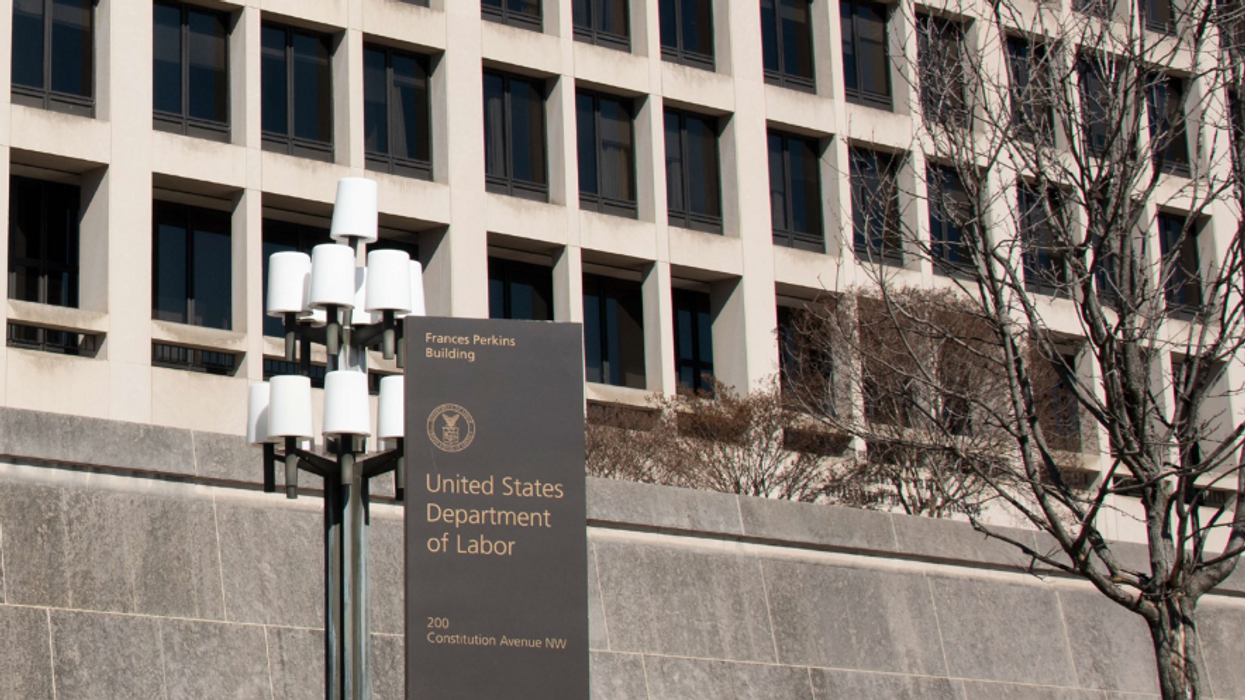
Robert Knopes/Education Images/Universal Images Group via Getty Images

A federal watchdog estimates that fraudsters stole $45.6 billion in unemployment benefits during the COVID-19 pandemic. The historic level of fraud is triple the amount that the U.S. government previously estimated. Some of the scam artists exploited dead people to file illegitimate unemployment claims, while others were fraud schemes carried out by street gangs.
In June 2021, the inspector general for the U.S. Labor Department "identified more than $16 billion in potentially fraudulent unemployment insurance (UI) pandemic benefits paid in four specific high-risk areas" since March 2020. On Thursday, the inspector general for the Department of Labor revealed that an additional $29.6 billion in fraudulent unemployment benefits were paid during the pandemic.
The inspector general listed the high-risk areas as multistate claims, suspicious emails, federal prisoners, and deceased persons. Of the $45.6 billion in fraudulent pandemic unemployment benefits, nearly $29 billion was from multistate claims, over $16 billion from suspicious emails, $267 million stolen by federal prisoners, and nearly $140 million taken by people posing as dead people.
"We determined 205,766 Social Security numbers of deceased persons were used to file claims for UI pandemic benefits," the report stated.
More than 1.7 million Social Security numbers were associated with suspicious email accounts that were suspected of stealing $16.2 billion in unemployment benefits during the pandemic.
In the five months after March 2020, over 57 million people filed claims with the unemployment insurance program.
"As the DOL-OIG reported, states struggled to handle the substantial increase in the volume of UI claims and to determine that benefits were paid to the right person in the correct amount," said the Department of Labor's Office of Inspector General.
From March 2020 until July 2021, U.S. federal and state governments paid out roughly $794 billion in unemployment benefits, according to the Department of Labor.
The DOL-OIG stated that it is focusing on "large-scale identity theft schemes involving multiple victims and organized criminal groups, including street gangs."
In one case, 11 members of a gang were charged with allegedly obtaining $4.3 million in fraudulent unemployment benefits. The gang members are suspected of using the identification of "more than 800 victims to submit nearly 1,000 claims for UI benefits."
Investigations by the DOL-OIG resulted in more than 1,000 people being charged with unemployment insurance fraud since the beginning of the COVID-19 pandemic.
"This milestone of 1,000 individuals being charged with crimes involving UI fraud and the identification of $45.6 billion in potentially fraudulent UI payments highlights the magnitude of this problem," inspector general Larry D. Turner said in a statement released on Thursday. "Hundreds of billions in pandemic funds attracted fraudsters seeking to exploit the UI program—resulting in historic levels of fraud and other improper payments."
Since the pandemic began, there have only been 400 convictions of unemployment insurance fraud.
In March, the Department of Justice announced in a press release that 1,000 people have been hit with criminal charges for pandemic-related fraud schemes involving unemployment insurance, the Paycheck Protection Program, the Economic Injury Disaster Loan program, and COVID-19 health care fraud. The 1,000 defendants are suspected of $1.1 billion in losses and pandemic relief loans totaling more than $6 billion.